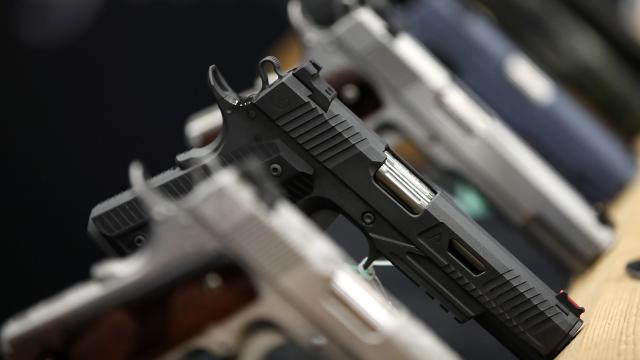Americans are in many ways in agreement when it comes to gun control, a new survey suggests. It found that a majority of Americans, gun owners included, support a wide range of gun-control policies, such as temporarily removing guns from people considered a danger to themselves or others and universal background checks for handgun purchases.
Researchers at Johns Hopkins Bloomberg School of Public Health conducted the online survey as part of a public opinion polling project that first began in 2013.
This year’s version polled more than 1,600 adults across the U.S., including 600 gun owners, on their support for more than two dozen gun-control policies that politicians, pundits, and experts have proposed should be enacted or expanded on a national level. The findings were published in the journal, Health Affairs.
Among other things, the survey found that most people want policies like universal background checks before someone can buy a handgun (88 per cent) or requirements to lock up guns in the home when not in use. A majority of people also supported so-called “red flag” gun laws that would allow police (76 per cent) or family members (80 per cent) petition the courts to remove guns from people deemed to be an imminent threat.
When looking only at responses from gun owners, this majority support often held up, though to a lesser extent. The biggest differences between the opinions of gun owners and non-owners was seen in questions about concealed carry, with gun owners being much more likely to support concealed carry at schools.
Between 2015 and 2019, the survey also found growing support for policies like universal background checks, lock-up laws, and purchaser licensing laws, which mandate a five-year-long renewable permit before a gun can be bought.
Currently, only a handful of states have such laws, which require prospective gun owners to get a permit from their local law enforcement office and to submit their fingerprints and photograph for record keeping. Public health experts, including at Johns Hopkins, have touted it as the one of the most impactful policies that could reduce gun-related deaths.
Relatively new proposed gun-control regulations were also popular. Most people (75 per cent) wanted to ban anyone from owning or creating guns without a serial number — a new concern thanks to the possibility of 3D-printed guns. And most (84 per cent) supported first-time gun owners being required to take a safety course.
One likely reason for this widespread support is that mass shootings have become a more salient reality for Americans. Definitions of a mass shooting vary, with no universal standard. The Washington Post and others, for instance, define them as events where four or more people (not including the shooter) are killed by a gun, whereas others may count them as events where four or more people are only injured.
Even by this stricter criteria, though, the rate of deadly mass shootings has escalated in the U.S. From June 2015 to August 2019, the Washington Post reported in early August, a deadly mass shooting occurred every 47 days on average in America. Between April 1999 (the month of the Columbine school shooting) and June 2015 (when the Charleston church shooting took place), the average had been 84 days between deadly mass shootings.
Of course, these shootings haven’t led to any major reforms in U.S. federal gun-control laws, thanks almost entirely to Republican-led opposition in Congress. These politicians — whose campaigns are usually funded by the NRA — have couched their resistance as doing right by their gun-owing constituents, but this is only the latest study to show how much of a lie that really is.
“Our study offers strong evidence that there are many policies with broad support among the American public that lawmakers can consider to reduce gun violence,” said lead author Colleen Barry, chair of the U.S. Department of Health Policy and Management at the Johns Hopkins Bloomberg School of Public Health, in a statement released by the university.
“In the face of highly contentious political debate, this study points to important areas where there is broad agreement among the public.”
